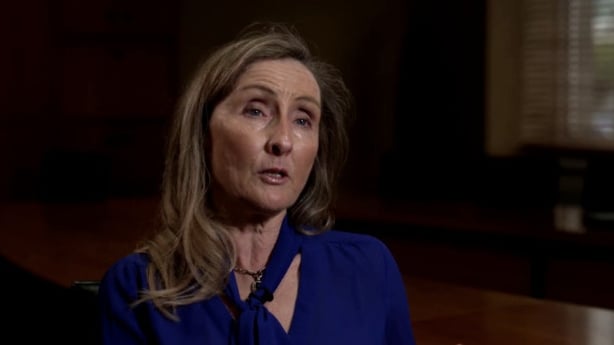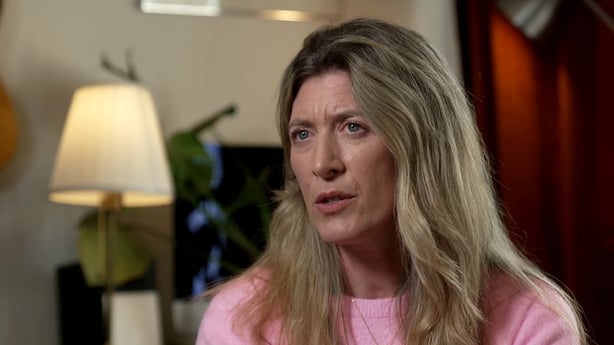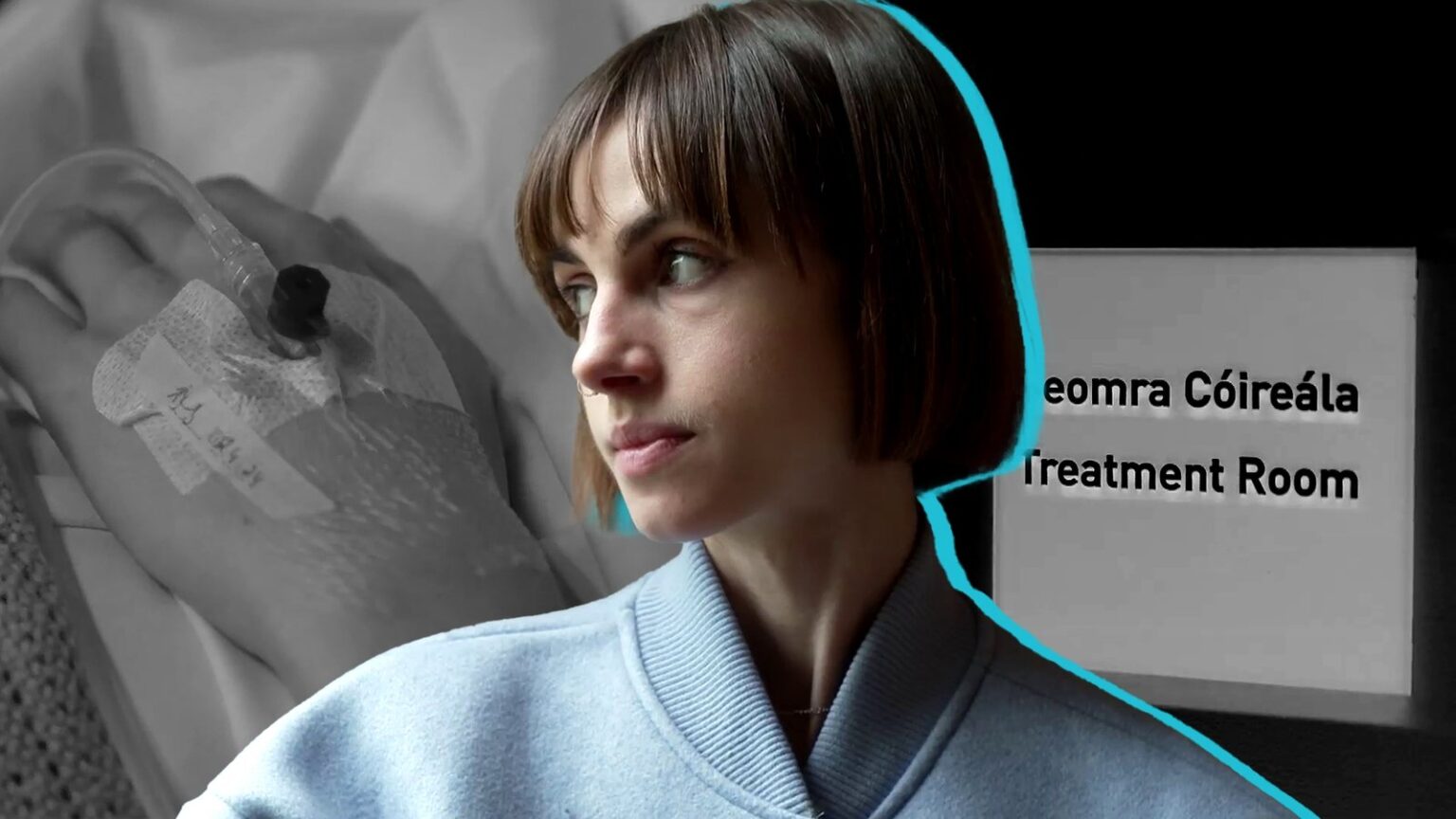Lauren Gaffney developed an eating disorder in her early teens and was diagnosed with anorexia nervosa while in transition year.
Now 26, she is being seen by her GP and a dietician, but struggling to get the help she says she needs because her Body Mass Index (BMI) is too low.
“I’m unwell, I need support, but yet I’m not at a heavy enough position in order to receive support. Our health professionals will only engage with me if I’m a certain BMI,” she said.
Experts often describe an eating disorder as a mental illness with physical symptoms.
Patients in Lauren’s situation require specialist care that can treat both the mental and physical side. If a person’s weight is below a certain BMI threshold, some clinicians who treat mental symptoms are reticent to treat the individual until their weight increases, as their cognitive function may be impaired.
“I need the help and support to increase my weight to get to the BMI, but there is nobody there who can offer me that support unless I go and I present myself to a hospital and be put on a medical ward for refeeding,” she told Prime Time.
Refeeding is a process overseen by medical professionals aimed at rebalancing the body’s processes and adding healthy weight following a period of starvation, without causing other complications.
Lauren is just one of around 200,000 people in Ireland who will experience an eating disorder at some point in their lives.

Lauren Gaffney is studying at Maynooth University
For many of them, waiting lists are long, and in-patient beds are scarce. In large parts of the country there is no specialist care available.
The National Clinical Programme for Eating Disorders (NCP-ED) was launched in 2018 with the aim of providing specialist care nationwide through sixteen multidisciplinary teams. Those teams were due to be fully operational by 2022.
Of the 16 teams announced, eight were to focus on adults while the other eight were for Child and Adolescent Mental Health Services (CAMHS).
Eleven are now in place, but there are no multidisciplinary teams for CAMHS in Donegal, Sligo, Leitrim, Cavan and Monaghan, in Laois and Offaly, or across a section of the mid-west covering Clare, Limerick and north Tipperary.
The 2018 plan also detailed an intention to open 20 new adult specialist in-patient beds by 2023, but the HSE has confirmed that these plans went unfunded, meaning no new beds were opened.
There are currently just three public beds across Ireland which provide specialist treatment for adults with eating disorders, and 16 for children.
A lack of specialist teams and beds means both adults and children are often unable to access timely care.
“Where the specialised eating disorder services exist, they work very well,” says Prof Fiona McNicholas a consultant child and adolescent psychiatrist in Crumlin Children’s Hospital.
“If we’re referring a child from Crumlin to a different part of the country where there isn’t an eating disorder service, that young person may experience more significant delays in accessing the services because they have to join the generic CAMHS waiting list – which is very long and which is often full of other urgent cases, whether it’s psychotic or suicidal – and of course the eating disorder young person may also be suicidal.”
Internationally, the number of people seeking treatment for eating disorders sharply increased during the pandemic. At the same time, the average age of those presenting dropped.
Prof Fiona McNicholas says that pattern has also been seen in Ireland, adding that presentations have now plateaued at a much higher level than during pre-pandemic years.
She says early intervention is crucial to try to prevent early signs of an eating disorder becoming a long-term problem.

Prof Fiona McNicholas
People can be affected by eating disorders right through adulthood, though most cases are diagnosed between the ages of 15 and 24.
Most people under 18 years-old will receive community-based treatment, and only a small minority will be hospitalised or receive treatment as in-patients.
Approximately 80 people will die in Ireland as result of an eating disorder every year.
“We need more of everything. More community services. More specialist in-patient beds. And we need more support as well,” says Harriet Parsons, a Training and Development manager with Bodywhys, the Eating Disorder Association of Ireland.
“I don’t think that the public do have a recognition that eating disorders have the highest mortality rate of any psychiatric disorder. The mortality rate for females with anorexia is 200 times the suicide rate for females. It shows us how serious it is as an illness,” Ms Parsons added.
Lauren says that restricting food was a coping mechanism that quickly took over her life.
“It’s a coping mechanism for life and things you can’t control. If only it was as simple as reducing something that you’re eating or not eating. But it’s far from that,” she said.
“It’s an illness that essentially takes over your being. It chews you up and swallows you whole and gives you no room for breathing. It morphs your identity, and it invades every aspect of your life.”
“You want to run away from yourself because you can’t bear this thing living inside you. You can’t get away from it because you need to eat every day to survive,” she said.
Harriet Parsons describes eating disorders as a ‘functional illness.’
“We think of an eating disorder as a coping mechanism. It’s something that a person does because in some way it helps them to feel better day to day. An eating disorder functions for somebody, it does something for them.”
“Everybody feels under different types of pressure to be a certain way or look a certain way,” she added.
“A person might have a tendency towards being anxious. They might be a perfectionist. They’re usually very, very clever, very high achiever. Diabetes is also a risk factor, and we know that there’s a huge genetic component,” Ms Parsons said.

Harriet Parsons is Training and Development manager with Bodywhys
The HSE operates four CAMHS in-patient units – one in Cork, one in Galway and two in Dublin. At full capacity, these would provide 72 in-patient mental health beds but there are currently only 51 available.
Previously 20 of those CAMHS beds were specifically for patients with eating disorders. Long-considered insufficient by advocacy groups, that has since been reduced to 16.
There is a knock-on from this, as demand for beds outstrips availability. Prof McNicholas and her colleagues see more eating disorder patients being admitted to the hospital through emergency departments, where they then receive acute but not specialist care.
“They’ve cut the number of both general and specific eating disorder beds on account of staffing and resources issues, but without any contingency plans,” says Prof McNicholas.
“That means when our colleagues in the community have a crisis case that they would like to be admitted to an in-patient unit, they’re not able to access those beds. And so the young person will be diverted to the emergency department and we will admit them here.”
Lauren has been through the process as a teenager. Now an adult, she is moving forward with her life while dealing day-to-day with anorexia.
“I’m on a path to become, hopefully, a primary school teacher. And I know that it sparks something in me. However, below the surface, I struggle incredibly,” she says.
“I swallow the guilt and shame of my existence, of my illness, and wish it never happened. And every day is like I’m treading through murky water. And I do worry that my body will give up on me because it’s been through a lot.”
A report from Conor Wilson and Sally Anne Godson about this topic features on the 25 April edition of Prime Time on RTÉ One television at 9.35pm.
Details of organisations that may assist in relation to mental health can be found at rte.ie/helplines.

